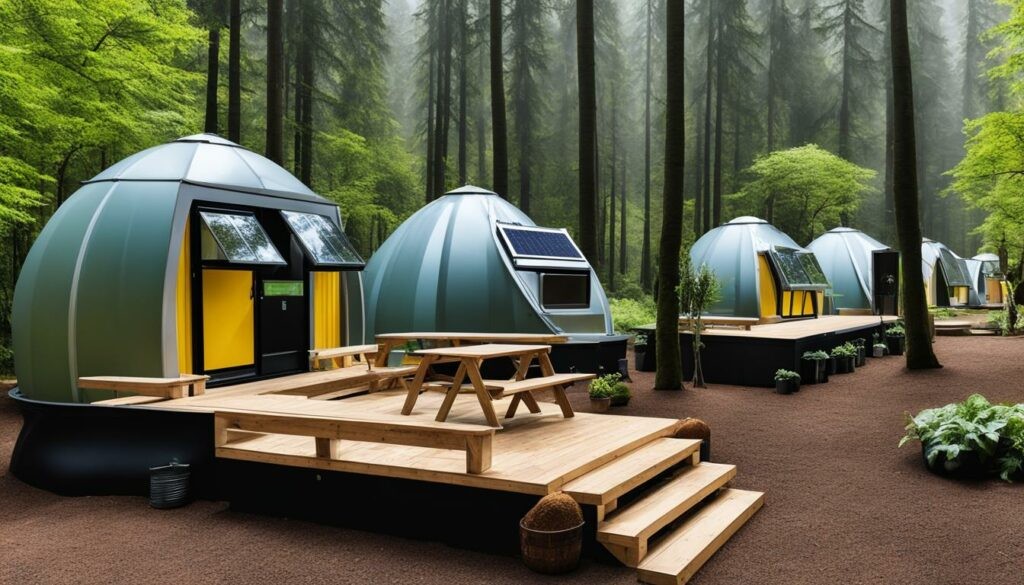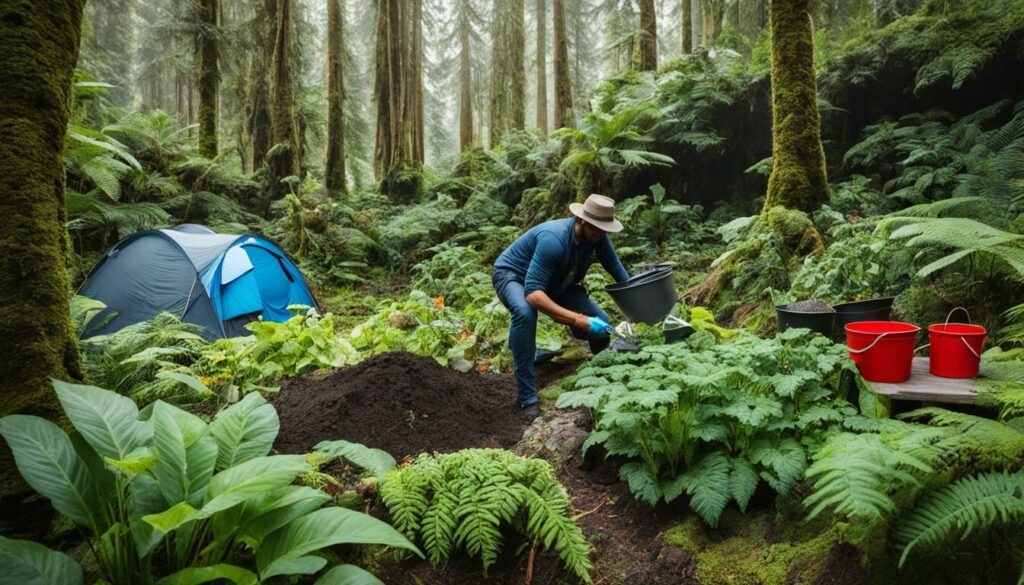SIXT.VN is dedicated to helping you explore Vietnam responsibly. Minimizing your environmental footprint while traveling in Vietnam is achievable by reducing plastic use and practicing proper waste disposal; let’s explore practical strategies for a greener trip.
1. Understanding Your Environmental Impact in Vietnam
Vietnam’s stunning landscapes and vibrant culture are increasingly threatened by pollution and unsustainable tourism practices. Recognizing the impact of your travel choices is the first step towards responsible tourism. From the bustling streets of Hanoi to the serene beaches of Phu Quoc, every corner of Vietnam feels the effects of improper waste management. A study by the World Bank in 2022 showed that Vietnam generates over 13 million tons of waste annually, with a significant portion ending up in the ocean, harming marine ecosystems. Choosing sustainable travel options helps preserve Vietnam’s natural beauty for future generations.
 Hoi An Ancient Town
Hoi An Ancient Town
2. Why Focus on Reducing Plastic and Proper Waste Disposal?
Reducing plastic consumption and ensuring proper waste disposal are critical for environmental conservation. According to a 2021 report by the United Nations Environment Programme (UNEP), plastic pollution is one of the most pressing environmental issues globally, with approximately 8 million tons of plastic entering the ocean each year. In Vietnam, much of this plastic waste originates from tourism and inadequate waste management infrastructure. Proper waste disposal, including recycling and composting, significantly reduces the amount of waste sent to landfills and incinerators. Embracing these practices helps protect Vietnam’s biodiversity, reduces pollution, and supports local communities in their sustainability efforts.
3. Pre-Trip Planning: Sustainable Travel Starts at Home
Before even setting foot in Vietnam, you can take several steps to minimize your environmental impact. Start by packing light to reduce fuel consumption during your flights. Choose eco-friendly luggage and travel accessories made from sustainable materials. Download useful apps on your phone.
Here’s a checklist to guide you:
- Pack Reusable Items: Bring a reusable water bottle, coffee cup, shopping bag, and utensils.
- Choose Eco-Friendly Toiletries: Opt for solid shampoo, conditioner bars, and reef-safe sunscreen.
- Research Sustainable Accommodations: Look for hotels or guesthouses committed to environmental sustainability.
- Plan Transportation Wisely: Consider public transportation or cycling for local travel.
- Learn Basic Vietnamese Phrases: Knowing basic phrases can help you communicate your needs and show respect for the local culture.
4. Minimizing Plastic Use: Practical Tips for Your Trip
Reducing plastic use while traveling is both simple and impactful. Vietnam, like many countries, grapples with plastic waste, but tourists can make a big difference by making conscious choices.
Follow these guidelines:
- Refuse Single-Use Plastics: Say no to plastic straws, bags, and cutlery. Use your reusable alternatives instead.
- Carry a Reusable Water Bottle: Refill your bottle at water stations or ask restaurants to fill it for you.
- Shop at Local Markets: Support local vendors and reduce packaging waste by buying fresh produce and goods at markets.
- Choose Accommodation Wisely: Select accommodations that provide refillable amenities and minimize single-use plastics.
According to a survey by Booking.com in 2023, 83% of global travelers believe sustainable travel is vital.
 Vietnamese Street Food
Vietnamese Street Food
5. Mastering Proper Waste Disposal: A Guide for Responsible Tourists
Proper waste disposal goes beyond simply throwing trash in a bin. In Vietnam, where waste management systems may differ from your home country, it’s important to be mindful of how you dispose of your waste.
- Separate Your Waste: If recycling facilities are available, separate recyclables (paper, plastic, glass) from general waste.
- Use Designated Bins: Dispose of waste in designated bins. If you’re unsure, ask locals for guidance.
- Support Composting Efforts: If your accommodation or local eateries have composting programs, participate by separating food scraps.
- Avoid Littering: Never litter. Always carry a small bag to collect your waste until you find a proper disposal bin.
- Be Mindful in Natural Areas: When visiting national parks or beaches, be extra careful to leave no trace.
6. Sustainable Accommodation: Choosing Eco-Conscious Options
Selecting accommodations that prioritize sustainability can significantly reduce your environmental impact. Many hotels and guesthouses in Vietnam are adopting eco-friendly practices. Look for certifications like Green Key or EarthCheck, which indicate a commitment to sustainability.
Here’s what to look for:
- Energy Efficiency: Accommodations that use renewable energy sources, energy-efficient lighting, and appliances.
- Water Conservation: Hotels that implement water-saving measures like low-flow showers and water recycling systems.
- Waste Reduction: Properties with recycling programs, composting, and efforts to minimize single-use plastics.
- Sustainable Sourcing: Hotels that source food and other products locally to reduce their carbon footprint.
7. Eco-Friendly Transportation: Getting Around Vietnam Responsibly
Transportation is a significant contributor to carbon emissions. Opting for eco-friendly transportation options can help minimize your environmental footprint while exploring Vietnam.
- Use Public Transportation: Utilize buses, trains, and trams whenever possible.
- Walk or Cycle: Explore cities and towns on foot or by bike. Many cities have bike rental services.
- Choose Eco-Friendly Tour Operators: Select tour companies that use fuel-efficient vehicles and prioritize sustainable practices.
- Consider Electric Vehicles: If renting a car, consider an electric or hybrid model if available.
According to Vietnam’s Ministry of Transport, promoting public transportation and eco-friendly vehicles is a key priority in reducing carbon emissions.
8. Supporting Local Communities: Responsible Tourism in Action
Engaging with local communities in a respectful and sustainable way enhances your travel experience and supports local economies.
- Shop Locally: Buy souvenirs and products from local artisans and markets.
- Eat at Local Restaurants: Support family-owned restaurants and eateries that use local ingredients.
- Participate in Community-Based Tourism: Opt for tours and activities that directly benefit local communities.
- Respect Local Customs: Be mindful of local traditions and customs. Dress modestly when visiting religious sites and learn basic Vietnamese phrases.
- Avoid Supporting Harmful Practices: Refrain from participating in activities that exploit animals or harm the environment.
 Local Vietnamese Market
Local Vietnamese Market
9. Reducing Food Waste: Mindful Dining in Vietnam
Food waste is a significant environmental issue. Being mindful of your food consumption while traveling can help reduce waste and support sustainable dining practices.
- Order Only What You Can Eat: Avoid over-ordering at restaurants.
- Take Leftovers: If you have leftovers, ask for a takeaway container to avoid food waste.
- Support Restaurants with Sustainable Practices: Choose restaurants that source ingredients locally, compost food waste, and minimize packaging.
- Eat Street Food Responsibly: Enjoy street food, but be mindful of packaging and waste disposal. Look for vendors using sustainable packaging.
10. Responsible Souvenir Shopping: Buying with a Conscience
Souvenir shopping is a fun part of traveling, but it’s important to buy responsibly. Choose souvenirs that are ethically sourced and environmentally friendly.
- Support Local Artisans: Buy handmade crafts and products directly from local artisans.
- Choose Sustainable Materials: Opt for souvenirs made from sustainable materials like bamboo, wood, or recycled materials.
- Avoid Products Made from Endangered Species: Refrain from buying souvenirs made from ivory, coral, or other endangered species.
- Consider Experiences Over Items: Instead of buying physical souvenirs, consider investing in experiences like cooking classes or cultural tours.
11. Educating Others: Spreading the Word About Sustainable Tourism
One of the most impactful things you can do is to share your experiences and knowledge with others.
- Share Your Experiences on Social Media: Use social media to highlight sustainable practices you encounter and inspire others to travel responsibly.
- Write Reviews: Leave positive reviews for accommodations and tour operators that prioritize sustainability.
- Talk to Friends and Family: Share your knowledge and encourage others to make sustainable travel choices.
- Support Sustainable Tourism Organizations: Donate to organizations that promote sustainable tourism in Vietnam.
12. Addressing Common Misconceptions About Eco-Tourism
Eco-tourism is often misunderstood, with many believing it’s only about visiting natural destinations. However, it encompasses much more, including cultural respect, community support, and minimizing environmental impact.
Some common misconceptions include:
- Eco-Tourism is Only for Nature Lovers: While natural destinations are often involved, eco-tourism also includes cultural experiences and urban environments.
- It’s Expensive: Sustainable travel doesn’t have to be costly. Many eco-friendly options are affordable and accessible.
- It’s Inconvenient: With proper planning, sustainable travel can be just as convenient as traditional tourism.
- It Doesn’t Make a Difference: Every effort to reduce your impact, no matter how small, contributes to a more sustainable future.
 Eco-Friendly Resort
Eco-Friendly Resort
13. The Role of Technology in Promoting Sustainable Tourism
Technology plays a crucial role in promoting sustainable tourism, with various apps and platforms designed to help travelers make eco-friendly choices.
- Sustainable Travel Apps: Use apps like Green Globe and BookDifferent to find eco-friendly accommodations and activities.
- Transportation Apps: Utilize apps that provide real-time information on public transportation options and bike-sharing services.
- Waste Reduction Apps: Employ apps that help you locate recycling centers and track your waste reduction efforts.
- Educational Platforms: Access online resources and platforms that offer information on sustainable travel practices and local conservation initiatives.
14. Case Studies: Successful Waste Reduction Initiatives in Vietnam
Several successful waste reduction initiatives in Vietnam demonstrate the potential for sustainable tourism.
- Hoi An’s Zero Waste Campaign: The ancient town of Hoi An has implemented a zero-waste campaign, encouraging businesses and residents to reduce, reuse, and recycle.
- Con Dao Islands’ Marine Conservation Efforts: The Con Dao Islands have launched marine conservation programs to protect coral reefs and reduce plastic pollution.
- Eco-Lodges in Sapa: Several eco-lodges in Sapa have implemented sustainable practices, including waste reduction, energy conservation, and community engagement.
These examples showcase how sustainable tourism can thrive in Vietnam and serve as inspiration for other destinations.
15. Collaborating with SIXT.VN for Eco-Friendly Travel Solutions
SIXT.VN is committed to providing eco-friendly travel solutions that help you minimize your environmental footprint while exploring Vietnam.
- Eco-Friendly Transportation Options: SIXT.VN offers a range of fuel-efficient vehicles and supports the use of public transportation.
- Sustainable Accommodation Partnerships: SIXT.VN partners with accommodations that prioritize sustainability and implement eco-friendly practices.
- Responsible Tour Operators: SIXT.VN collaborates with tour operators that offer sustainable and community-based tourism experiences.
- Carbon Offset Programs: SIXT.VN provides options for offsetting your carbon emissions when booking transportation and accommodations.
By choosing SIXT.VN, you can ensure that your travel choices align with your commitment to sustainability.
SIXT.VN: Your Partner in Sustainable Exploration
At SIXT.VN, we understand the challenges of planning an eco-conscious trip to Vietnam. Language barriers, finding reputable services, and arranging transportation can be daunting. That’s why we offer comprehensive travel solutions designed to make your journey seamless and sustainable.
- Expert Travel Consultation: Let our travel experts help you plan an itinerary that aligns with your interests and promotes responsible tourism.
- Convenient Airport Transfers: Arrive in Vietnam stress-free with our reliable and eco-friendly airport transfer services.
- Sustainable Accommodation Booking: Choose from a curated selection of hotels and guesthouses committed to environmental sustainability.
- Curated Tours: Explore the best of Hanoi with our expertly crafted tours, designed to showcase the city’s beauty while minimizing environmental impact.
- Easy Flight Booking: Find the best flight deals and book with confidence, knowing you’re supporting sustainable tourism practices.
Contact SIXT.VN today to start planning your unforgettable and eco-friendly adventure in Vietnam:
- Address: 260 Cau Giay, Hanoi, Vietnam
- Hotline/WhatsApp: +84 986 244 358
- Website: SIXT.VN
Embrace sustainable tourism, reduce your plastic use, and practice proper waste disposal to protect Vietnam’s natural beauty. Your journey can make a positive impact.
FAQ
1. What are some easy ways to reduce plastic use while traveling in Vietnam?
Simply refuse plastic straws and bags, carry a reusable water bottle, and shop at local markets.
2. How can I ensure proper waste disposal in Vietnam?
Separate your waste, use designated bins, support composting efforts, and avoid littering.
3. What should I look for when choosing sustainable accommodations in Vietnam?
Look for energy efficiency, water conservation, waste reduction practices, and sustainable sourcing.
4. What are some eco-friendly transportation options in Vietnam?
Use public transportation, walk or cycle, choose eco-friendly tour operators, and consider electric vehicles.
5. How can I support local communities while traveling in Vietnam?
Shop locally, eat at local restaurants, participate in community-based tourism, and respect local customs.
6. What can I do to reduce food waste while dining in Vietnam?
Order only what you can eat, take leftovers, and support restaurants with sustainable practices.
7. What should I consider when buying souvenirs in Vietnam to ensure I’m being responsible?
Support local artisans, choose sustainable materials, and avoid products made from endangered species.
8. How can technology help me travel more sustainably in Vietnam?
Use sustainable travel apps, transportation apps, and waste reduction apps to make eco-friendly choices.
9. Are there any successful waste reduction initiatives in Vietnam I can learn from?
Yes, Hoi An’s zero-waste campaign, Con Dao Islands’ marine conservation efforts, and eco-lodges in Sapa are great examples.
10. How can SIXT.VN help me travel more sustainably in Vietnam?
SIXT.VN offers eco-friendly transportation options, sustainable accommodation partnerships, responsible tour operators, and carbon offset programs.



